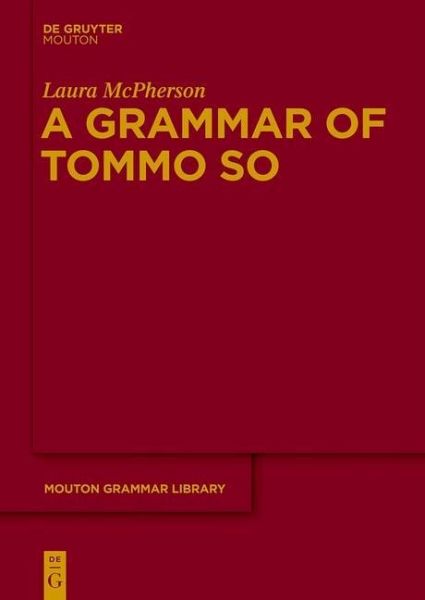
A Grammar of Tommo So (eBook, PDF)
Versandkostenfrei!
Sofort per Download lieferbar
174,95 €
inkl. MwSt.
Weitere Ausgaben:

PAYBACK Punkte
87 °P sammeln!
Tommo So is a Dogon language with approximately 60,000 speakers in Mali, West Africa. As only the second full grammatical description of a Dogon language, this volume is a critical resource for solving the mystery of Dogon's genetic affiliation with other languages in Africa. Tommo So is an SOV language with isolating nominal morphology and agglutinative verbal morphology; suffixes on the verb mark tense/aspect/negation as well as subject agreement. The phonology is sensitive to levels of verbal morphology in that variable vowel harmony applies less frequently as one moves to outer layers of t...
Tommo So is a Dogon language with approximately 60,000 speakers in Mali, West Africa. As only the second full grammatical description of a Dogon language, this volume is a critical resource for solving the mystery of Dogon's genetic affiliation with other languages in Africa. Tommo So is an SOV language with isolating nominal morphology and agglutinative verbal morphology; suffixes on the verb mark tense/aspect/negation as well as subject agreement. The phonology is sensitive to levels of verbal morphology in that variable vowel harmony applies less frequently as one moves to outer layers of the morphology. The tone system of Tommo So is of typological interest in both its phonological and syntactic instantiations. Phonologically, it is a two-tone system of H and L, but these specified tones contrast with a surface-underspecified tone. Grammatically, the lexical tone of a word is often overwritten by syntactically-induced overlays. For example, an inalienable noun's tone will be replaced with L if it is possessed by a non-pronominal possessor, and by either H or HL if the possessor is pronominal. The language has also innovated a series of locative quasi-verbs and focus particles sensitive to pragmatic factors like certainty.
Dieser Download kann aus rechtlichen Gründen nur mit Rechnungsadresse in A, B, BG, CY, CZ, D, DK, EW, E, FIN, F, GR, HR, H, IRL, I, LT, L, LR, M, NL, PL, P, R, S, SLO, SK ausgeliefert werden.



